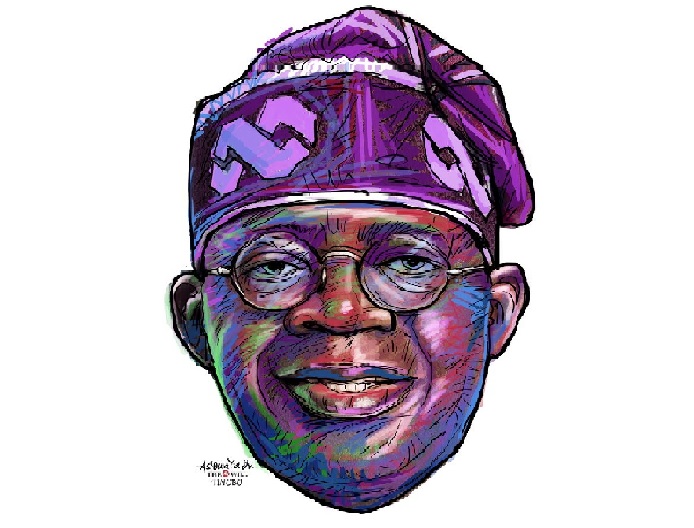January 07, (THEWILL) – It is with a heavy heart and a profound sense of despair that I write this. In a tragic series of events that occurred on the eve of Christmas and continued through Christmas and Boxing Day, over 150 people were killed in attacks across more than a dozen communities in Plateau State.
The violence in Bokkos, Barkin-Ladi and Mangu LGAs led to the destruction of numerous homes, displacing many residents from their communities. This is the latest in a series of mindless and unjustifiable killings that greet the average Nigerian daily.
In the North-West, bandit groups have been conducting killings, kidnappings and looting. The South-East has experienced killings of residents and government officials amidst separatist agitations. The North-East faces attacks from Boko Haram and its splinter factions, including ISWAP. And the North-Central has seen violence due to clashes between herders and farmers, notably in Plateau State.

It saddens me that wanton killings have become so commonplace in Nigeria that most of its citizens are no longer moved by the rising death toll. The implication is clear: Nigerian lives are treated as expendable, mere statistics in a violent cocktail of ethnic tension, religious polarisation and economic frustration. We have normalised the abnormal in our very dear country which we founded decades ago with so much hope and patriotism.
As a Nigerian, I understand the complex dynamics that have given rise to violence and crime across the country. Endemic government corruption has eaten deep into the moral fabric of society, eroding cultural values and making life meaningless for many who have known nothing but poverty and hardship since birth. However, understanding why things have degenerated to these despicable levels does not make the situation any less heartbreaking.
No life anywhere in the world is without significance, talk less of Nigeria where every individual existence represents an entire lineage of ancestors past and communities present. So, when did we get to the point where killers and murderers could so freely extinguish the lives of fathers, mothers, sons and daughters without consequences from the authorities sworn to protect them? I find this quite appalling.
The bitter truth is that the Nigerian Government – past and present – does not believe Nigerian lives are worth much. How else can one explain the lackadaisical attitude towards apprehending and prosecuting terrorists and criminals who have put entire communities to the sword? Or the indifference to victims’ families left destitute and traumatised after losing their loved ones to senseless violence? Until the actions of the country’s leaders accurately reflect the realities faced by common Nigerians, the rhetoric about securing Nigerian lives remains empty sloganeering.
Frankly, I fear numbness has enveloped Nigerians so much that we may never be able to hold our political leaders accountable for this. The legendary patience and resilience of Nigerians now borders on cowardly acceptance of fate in the face of unimaginable atrocities. Perhaps there are no easy fixes to stabilise the chaotic decline into disorder. Even so, excusing leadership failure by throwing up one’s hands in despair is unacceptable. Where there is a will, there must be a way.
Moving forward requires a collective resolution from all Nigerians that enough is enough. Government officials and our political leaders need to be held accountable through any democratic means possible – protest, dissent and ballot box sanction. Simultaneously, citizens must support grassroot movements that enhance security in local communities.
Most importantly, we must regain our ability to be outraged by the needless loss of life rather than adjusting to fate. The paths ahead will be painful and messy, but the alternative of doing nothing amidst raging rivers of blood is unconscionable.
The enemies of the Nigerian state seek to beat the nation into fragmented submission through the politics of fear. Whether these merchants of death are bandits, insurgents or even so-called politicians, Nigerians must stand defiant, insisting that every Nigerian life matters.
The stakes are high, but reclaiming Nigeria from the jaws of catastrophe depends on a collective pivot towards a culture of human dignity that values each and every life. We will all become casualties if we remain docile and do nothing.
As the latest tragic news headlines of attacks by armed groups fade from public attention, an unsettling sense of deja vu descends. How many times have we been at this same juncture as a nation – reeling from deadly violence while helpless to prevent the next imminent bloodbath? Like a recurring nightmare, the body count continues rising as the government twiddles its thumbs.
Perhaps even more damning is the realisation that the state exaggerates its efforts to provide security and administration. On paper, resources allocated to security agencies and military deployment to hotspots seem reasonable. Yet, the situation on the ground paints a picture of paralysis – almost as if the machinery of government has been specially configured for underperformance due to hyper corruption.
Escaping this vicious cycle requires confronting some uncomfortable truths which enable the persistence of carnage and chaos. Despite outward projections of strength, the Nigerian state lacks capacity and perhaps, the will to restore stability and order. And despite outward frustrations, Nigerians have generally accepted insecurity with a resigned tolerance rather than rising up.

These twin failures reinforce each other, creating an equilibrium of bloodshed that satisfies the nefarious objectives of bandits and insurgents. Breaking this gridlock demands radical self-examination both from the political leadership and ordinary Nigerians alike. Difficult as it may be, pretending that Nigeria possesses strength and cohesion, which are nonexistent, is national denial that costs innocent lives.
Most analyses of violence and loss of life in Nigeria omit an uncomfortable but necessary conversation around the role of state security agencies. It is an open secret that actors in different arms of the government actively enable attacks when it aligns with political or economic interests. This is an obvious fact.
The result is competing factions in the political elite who sponsor chaos and bloodshed to score points against one another.
Outrageously, these puppet masters retire to their secure mansions in luxury, while fellow Nigerians are slaughtered in villages barely kept afloat amidst economic misery.
Thus, a substantial portion of violence results from elite sabotage of peace and stability for selfish ends. I have heard plausible talks about the insecurity and violence in some northern states, such as Zamfara and Niger, attributed to the control of solid minerals in those areas by powerful and influential persons.
Until the truth about state-sponsored terror becomes part of mainstream discourse on insecurity, all interventions will be fruitless band-aids on a malignant political cancer. Nigerian lives will remain cheap commodities easily sacrificed as bargaining chips in the game of thrones amongst the ruling class and criminal gangs.
Ultimately, Nigeria finds itself at yet another bleak inflection point, several decades after independence, still unable to guarantee the most basic human needs – life and safety. While complex dynamics that vary across regions drive conflict and bloodshed, a common theme is the willful negligence of political leadership.
Whether due to incapacity, incompetence or intentional orchestration of violence, the state has failed woefully to fulfil its covenant with citizens, regarding protection of life and property. This broken covenant is at the root of normalised violence and communal fragmentation tearing at Nigeria’s social fabric.
With a new administration in place, citizens must interrogate political leaders and appointees vigorously regarding their commitments to addressing insecurity, while standing up for the value of every Nigerian life. Symbolism and emotive rhetoric will no longer suffice with lives at stake daily. Nigerians must demand honesty, regarding the true state of affairs and support leaders willing to get to the heart of the matter. There just has to be consequences for these dastard acts.
If we remain trapped in denial about the expendability of Nigerian lives to the governing elite, the butcher’s bill will continue climbing ever higher. The souls lost in countless attacks across Nigeria call for redemptive justice from beyond. Will we honour their suffering by facing harsh truths and making difficult choices? Or will the rivers of blood keep swelling while the nation looks away in paralysis? The answers lie within each Nigerian heart and conscience.




